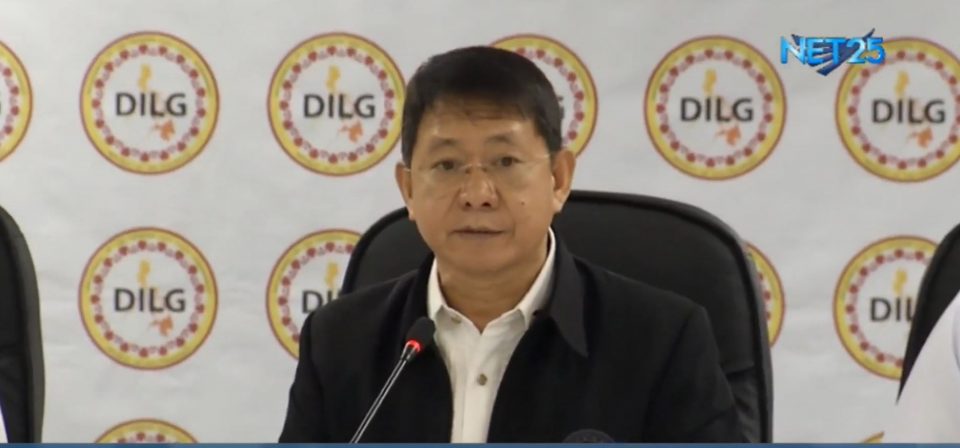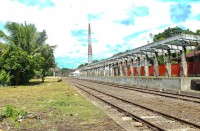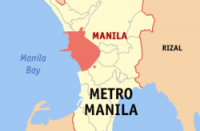
-60 day period set as deadline by DILG started on Monday, July 29
(Eagle News) – Interior and Local Government Secretary Eduardo M. Año cited the performance of Manila Mayor Isko Moreno as an example for other Metro Manila mayors to follow as he urged them to clear and clean Metro Manila’s streets within 60 days.
The 60-day period for the clearing operations set by the Department of Interior and Local Government as deadline for all Metro Manila mayors started on Monday, July 29.
Año announced on Monday the issuance of a memorandum circular that set the 60-day ultimatum for all mayors.
Año said that if Moreno had made substantial improvement of Manila’s city streets and public places within three weeks in Manila, the other mayors could also do this.
“We urge the local chief executives of Metro Manila to step up to the challenge and emulate Mayor Isko Moreno who has made remarkable progress in clearing the roads of Manila,” he said.
He said that he would not hesitate to recommend to the Office of the President the suspension of any local chief executive (LCE) who will fail or refuse to act decisively and urgently on the traffic situation within his locality.
“There is no room for compromises on this issue. It’s either black or white. Hindi ako magdadalawang-isip na magpasa ng mga pangalan ng LCEs na matitigas ang ulo sa ating Pangulo. If it all leads to a suspension, so be it. It is for the benefit of the people anyway,” the DILG chief said.
He also urged the public to support and cooperate with their respective local government units (LGUs) in their road clearing efforts.
“This program to clear all road obstructions in Metro Manila as well as all over the country is long overdue. Hindi na uubra ang mga alibi lalo na’t ang Pangulo na mismo ang nag-utos. Kelan pa ba tayo aaksyon para maibsan ang traffic?” Año said.
He said mayors should prioritize clearing primary roads directly contributing to traffic in the metropolis as well as arterial roads leading to main thoroughfares such as Commonwealth Avenue, Osmeña Highway, Aurora Boulevard, C5, among others.
Next on the list will be tertiary roads and residential areas where even the sidewalks are being used as tiangge, parking area, sari-sari store and house extension.
“Talagang nagkaroon ng pagpapabaya sa bahagi ng LGU at pagmamalabis sa bahagi ng mga mamamayan. Kapag pinabayaan natin ito, sisikip ng sisikip ang mga daanan, mas lalong lalala ang traffic at walang mangyayaring pagbabago,” he said.
-Mayors who won’t follow to be penalized, could be removed from office, says DILG-
The DILG cited Section 60 of the Local Government Code of the Philippines as basis for penalties for mayors who would not follow the DILG memorandum.
This states that gross negligence or dereliction of duty, together with abuse of authority, dishonesty, oppression, among others, are grounds for a local official to be disciplined, suspended, or removed from office.
Preventive suspension may be imposed by the President if the respondent is an elective official of a province, a highly urbanized or an independent component city; by the governor, if the respondent is an elective official of a component city or municipality; or by the mayor, if the respondent is an elective official of the Barangay, the DILG said.
Aside from clearing road obstructions, the DILG Secretary says LGUs are also expected to review existing city, municipal and barangay ordinances and resolutions that allow the use of public roads or sidewalks for barangay outposts, talipapa, tricycle terminals and similar purposes and to cause the revocation of said ordinances.
He said mayors should also employ appropriate strategies in order to cushion the impact of the clearing operations on those who will be displaced by such operations.
“Hindi dapat tayo tumitigil sa paglilinis ng mga kalye at kalsada. Siguraduhin nating mayroon din silang maayos o alternatibong kalalagyan,” Año said.
He also reminded LGUs that they have the full burden of constructing, maintaining, and regulating the use of local roads, especially the ones that will be reclaimed in the process of clearing.







